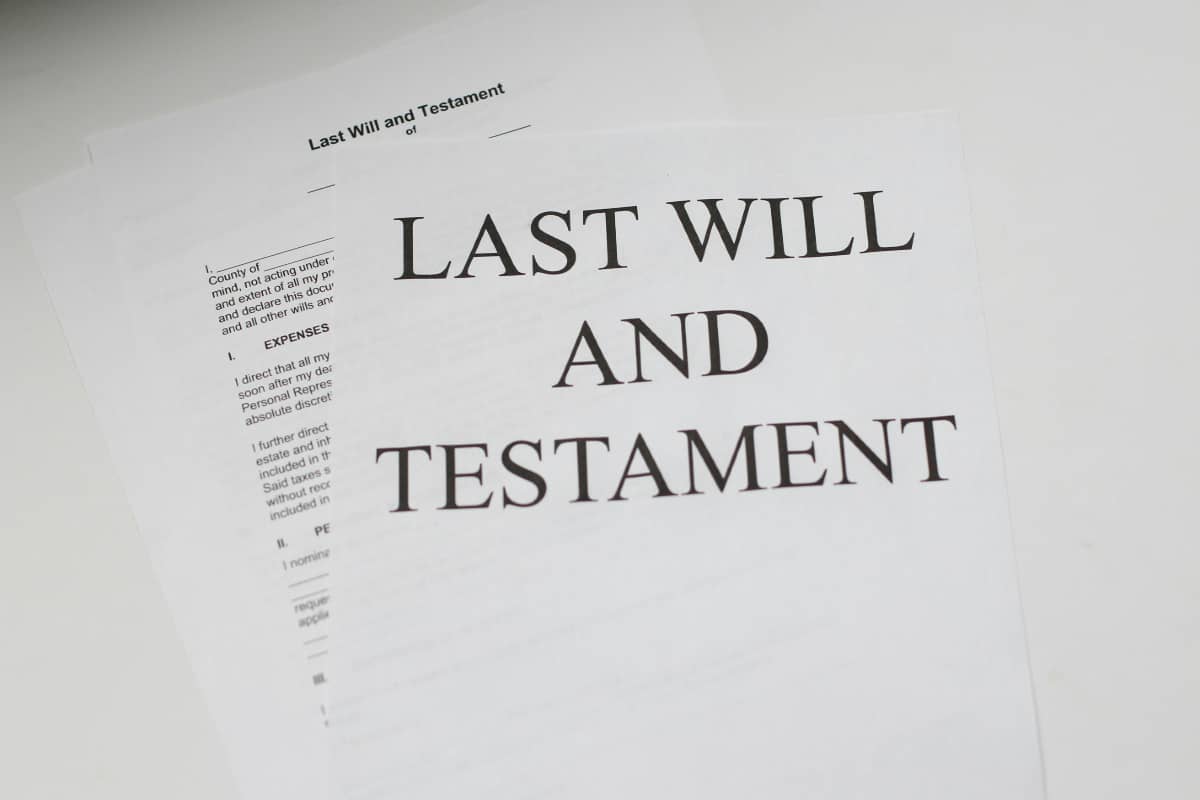Ronald D. Payne is now with Tuggle Duggins P.A.

What happens when you don’t have a legally valid will? It’s a mess. North Carolina intestacy laws kick in, dictating fragmented asset distribution and failing to honor your wishes. Family infighting over “rightful” shares often results, sometimes spanning generations – like a soap opera you hoped stayed fiction.
Losing someone leaves families grieving and uncertain about how to implement their last wishes. But having an ironclad will offers direction by clearly stating your intentions. Still, it can be hard to know what makes a legally valid will in NC.
One of the most often-asked questions is whether a will needs to be notarized. The short is no it doesn’t, but having it notarized does offer added benefits.
As attorneys guiding North Carolina families through difficult transitions, we handle proper will execution regularly. Let’s cut through misconceptions and discuss what exactly makes a will “legal.”
Under Section 31-3.3 of North Carolina estate statutes governing will validity, any last testament must meet certain legal mandates to qualify for probate approval following your death.
These formalities make the process of drafting a will a little more challenging. However, they are there for a reason. The goal is to prevent fraud, deception, and other destructive behaviors.
Requirements include:v
Generally, the “testator” (person creating the will document) must sign the actual will in ink, not merely direct someone else to sign their name. The signature provides evidence you directly participated in approving the will’s contents and weren’t incapacitated or tricked without consent.
Of course, exceptions exist for those physically unable to sign their name, in which case directing another to sign for you in your presence is considered acceptable. In all cases, however, the testator’s marked participation remains vital.
Additionally, state statute requires the testator to sign or acknowledge their signature on the will before at least two competent, disinterested witnesses above the age of 18. These witnesses cannot benefit under the will’s terms.
They must directly observe you sign without obstruction or participate in an acknowledgment ceremony. This requirement is put in place to avoid forgery.
Despite common assumptions, North Carolina specifically does not require notarization on a will to make the document fully legal and enforceable. The witnessed signature protocol meets formalization standards for the will submission to probate court after death.
However, notarization has other advantages both in backing evidence and simplifying court processes later.
Under the state’s Uniform Notary Act, notarization aims to verify identities and willingness of signers on legal documents, deterring fraud. Notaries identify witnesses by confirming their identification.
There are several key benefits to employing the services of a notary. These include:
The notarization process further confirms that you signed the document of your own volition. It’s very difficult to make the case that a will was coerced once a notary is brought in.
This affidavit allows probating a will without having to either call witnesses to provide sworn affidavits or to testify in court. Having a licensed, bonded notary attest to execution measures supplements the protective process. This further demonstrates authenticity and sound mind rather than just relying on witnesses alone.
If accessing a notary poses challenges, North Carolina still provides alternatives meeting will formalization standards. These include:
North Carolina stands as one of few states still recognizing handwritten “holographic” wills meeting certain conditions per § 31-3.4. These homemade documents require:
Without witnesses or notarization, verified handwritten wills can be sufficient. However, there are potential concerns. If the handwriting is unclear, or the will is missing key provisions, it can lead to increased costs for verification, disputes and omissions that have to be handled via intestacy procedures. It’s also easier to forge a handwritten will. For these reasons, most people find other options preferable.
Requiring only your signature along with two competent witness signatures remains compliant even without notarization. However, this puts more burden on witnesses to recall specifics years later. Collective memories fade quickly, so contemporaneous verification through notaries strongly supplements this option.
Again, notarization is not mandatory to legitimize a North Carolina will. However, incorporating this best practice powerfully demonstrates authenticity and rational capacity at signing. It further protects your testamentary wishes from malicious legal actions trying to override estate distribution instructions using claims of incompetency.
Schedule a consultation with our office if you have any questions on will documentation or getting your specific estate plan legally aligned. Don’t leave such important assets vulnerable through preventable technical missteps. Our substantial experience in navigating North Carolina probate regulations positions us to facilitate compliant, proceedings that avoid costly probate contests & challenges.